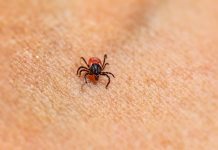Welcoming a new puppy into your home is an exciting adventure filled with joy, curiosity, and a few inevitable challenges. Among the many responsibilities that come with caring for your furry friend, feeding is one of the most crucial aspects of ensuring their healthy growth and development. While it may seem straightforward, there are common pitfalls that even the most loving pet owners can stumble upon. In this guide, we will explore some of the most frequent puppy feeding mistakes and offer practical advice to help you nurture your pup with confidence. By avoiding these missteps, you can lay the foundation for a lifetime of health and happiness for your beloved companion. So, grab a cup of tea, settle in, and let’s embark on this journey to becoming the best puppy parent you can be.
Choosing the Right Puppy Food for Optimal Health
Choosing the right food for your furry little friend is crucial for their growth and development. Puppies have unique nutritional needs that differ significantly from adult dogs, and selecting the appropriate diet is a cornerstone of their long-term health. Here are some essential tips to help you make the best choice:
- Look for Quality Ingredients: Opt for foods that list real meat as the first ingredient. Avoid products with fillers like corn or soy, which offer little nutritional value.
- Consider Your Puppy’s Size and Breed: Different breeds grow at different rates, and their food should reflect that. Large breeds may need a formula that supports slower growth to prevent joint issues.
- Check for Essential Nutrients: Ensure the food contains a balanced ratio of protein, fats, and carbohydrates, along with essential vitamins and minerals. DHA, a fatty acid, is crucial for brain and eye development.
By prioritizing these aspects, you’ll set your puppy up for a healthy, happy life. Remember, your veterinarian can be a valuable resource in determining the best diet for your specific pup.
Avoiding Overfeeding and Understanding Portion Control
Understanding the right portion sizes is crucial for your puppy’s health and development. Puppies have smaller stomachs, so overfeeding can lead to discomfort and health issues like obesity. It’s essential to follow the feeding guidelines provided by your vet or the dog food manufacturer, which are often based on your puppy’s age, weight, and breed. Remember, these are just starting points, and adjustments might be necessary as your puppy grows.
- Watch for hunger cues: Puppies might not always finish their meals, and that’s okay. They will eat what they need.
- Adjust as needed: If your puppy is leaving food or seems less active, it might be time to tweak the portions.
- Regularly weigh your puppy: Monitoring their weight will help you make informed decisions about their diet.
- Avoid human food: It’s tempting to share, but it can disrupt their nutritional balance.
By paying attention to these factors, you can help ensure your puppy grows into a healthy and happy adult dog.

Recognizing Harmful Ingredients in Puppy Diets
As a devoted puppy parent, ensuring your little one’s diet is safe and healthy is crucial. Unfortunately, some common ingredients found in dog food can be detrimental to their well-being. Artificial preservatives such as BHA, BHT, and ethoxyquin are often added to extend shelf life but may pose health risks. Similarly, artificial colors and flavors are unnecessary additives that can cause allergic reactions or hyperactivity.
When examining food labels, watch out for fillers like corn, wheat, and soy, which provide minimal nutritional value and can lead to digestive issues or allergies. Additionally, avoid foods with by-products or unidentified meat meals, as these can contain lower-quality proteins and undesirable parts of animals. Instead, opt for high-quality, natural ingredients that support your puppy’s growth and vitality.

Establishing a Consistent Feeding Schedule for Your Puppy
Creating a routine for your puppy’s meals is crucial to their development and health. Puppies thrive on consistency, so establishing a regular feeding schedule can help prevent digestive issues and ensure your furry friend is getting the nutrients they need. Consider feeding your puppy at the same times each day, and be mindful of portion sizes according to their age and breed. This predictability not only aids in digestion but also helps in house training, as puppies often need to relieve themselves after meals.
- Morning Meal: Start the day with a nutritious breakfast to fuel their energy.
- Midday Snack: If your puppy is particularly active, a small snack can keep their energy levels steady.
- Evening Meal: Ensure the last meal of the day is at least a couple of hours before bedtime to avoid accidents during the night.
By adhering to a set feeding schedule, you foster a sense of security and structure for your puppy. Remember, consistency is key, and deviations from this routine can lead to confusion and stress for your pet. Keep mealtimes a calm and positive experience to encourage healthy eating habits from the start.
















